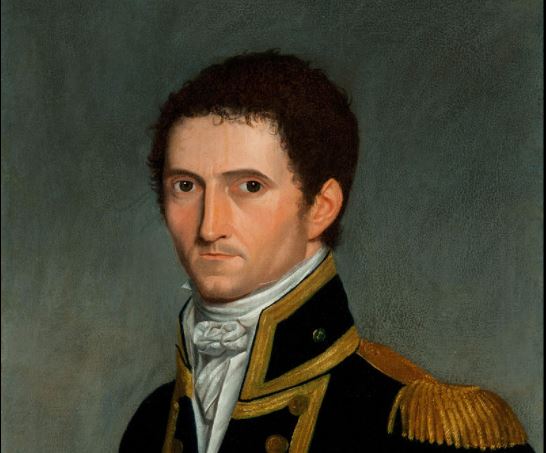
Three years after the remains of Captain Matthew Flinders were re-discovered by archaeologists beneath Euston train station in London, the famed explorer and navigator – who is the namesake of Flinders University – remains in the news.
The remains of the Lincolnshire-born explorer will finally be buried in his home village near Spalding on 16 March 2024, to commemorate the 250th anniversary year of his birth.
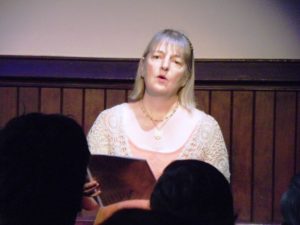
While his internment inside the St Mary and the Holy Rood Church has been delayed several times due to the coronavirus pandemic, organisers hope the new date will enable a significant number of Australian and New Zealand travellers to attend the event - including Flinders University's resident expert on Captain Flinders, Dr Gillian Dooley.
Captain Flinders, the first person to circumnavigate what is now Australia in 1803 and used that name to describe the land mass on a map in 1804, died of kidney disease at his home in London on July 19, 1814. He was aged 40.
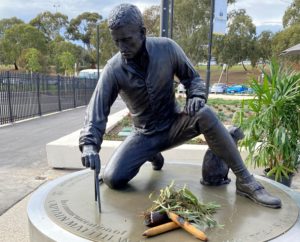
He was buried in the churchyard of St James Piccadilly, Euston, on July 23, 1814 but his headstone was removed after Euston Station expanded into the burial ground in the 1840s, and it was believed his remains were lost.
In his will, Flinders left instructions for the erection of four marble slabs in his parish church, to commemorate his great grandfather, his grandfather, his father and himself.
These slabs were erected and remain intact, but his parish church also plans to house a display dedicated to Flinders upon his internment and have one of its stained glass windows commemorate his life.
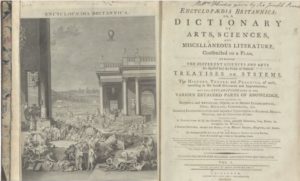 The value of Flinders' influence continues to rise, as proven by an auction in London by Christie's during December 2021 of several items provided by direct descendants of Matthew Flinders.
The value of Flinders' influence continues to rise, as proven by an auction in London by Christie's during December 2021 of several items provided by direct descendants of Matthew Flinders.
It included an autograph letter (signed 'Mattw. Flinders') to his sister-in-law Belle Tyler, written aboard HMS Investigator on 29 April 1801, which was expected to fetch £30,000 but sold for £68,750.
Matthew Flinders' copy of Cook's First Voyage, a three-volume set, almost certainly taken with him aboard HMS Investigator on the first circumnavigation of Australia and featuring annotations by Flinders correcting Cook's geographical descriptions and providing a 17-word dictionary of the language spoken by native inhabitants, was expected to fetch £80,000 at auction but sold for £400,000.
A 20-volume set of the Encyclopaedia Britannica given to Matthew Flinders by Sir Joseph Banks and used aboard HMS Investigator on the first circumnavigation of Australia - featuring annotations by Flinders on subjects including metaphysics, theology, weather, and the character of Australia's Indigenous inhabitants - was expected to fetch £50,000, but sold at auction for £343,750.
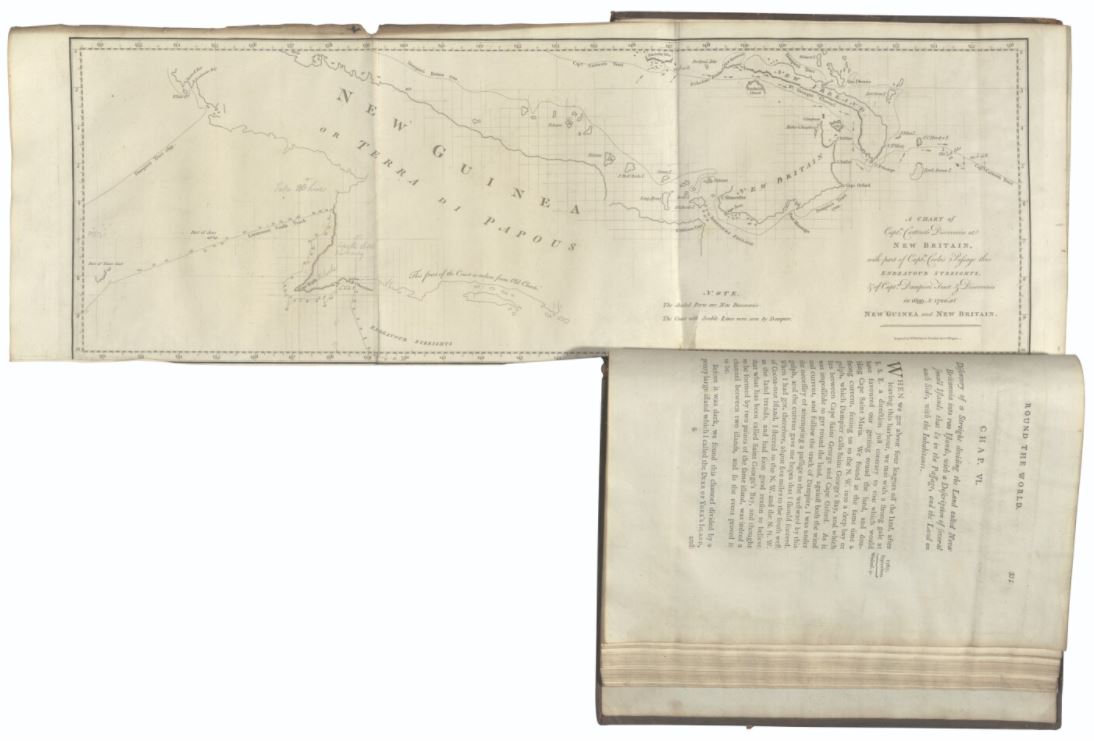 Meanwhile, Matthew Flinders' copy of Cook's First Voyage was sold for £400,000 ($US529,040) at Christie's on 15 December 2021.
Meanwhile, Matthew Flinders' copy of Cook's First Voyage was sold for £400,000 ($US529,040) at Christie's on 15 December 2021.
Captain James Cook's An Account of the Voyages undertaken by the order of His Present Majesty for making Discoveries in the Southern Hemisphere was almost certainly taken by Matthew Flinders on his historic voyage aboard HMS Investigator on the first circumnavigation of Australia. It sold with Flinders' autograph annotations and providing a 17-word dictionary of the language spoken by the Aboriginal inhabitants.
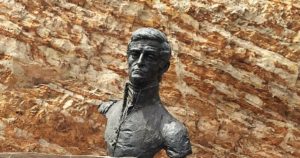
Flinders University literary scholar Dr Gillian Dooley is launching a book on aspects of Flinders' life and career, Matthew Flinders: The Man Behind the Map (Wakefield Press) in May this year.
She says the Flinders Australian exploration information held by the University's Library Special Collections inspire interested her interest in the British explorer and his own writing.
In the epilogue, 'Flinders as Romantic Hero through the Generations', she notes that Flinders' career was influenced by his romantic notions of the figures of the past like Captain Cook – starting from his claim that he was lured to the sea by reading Robinson Crusoe as a child.






